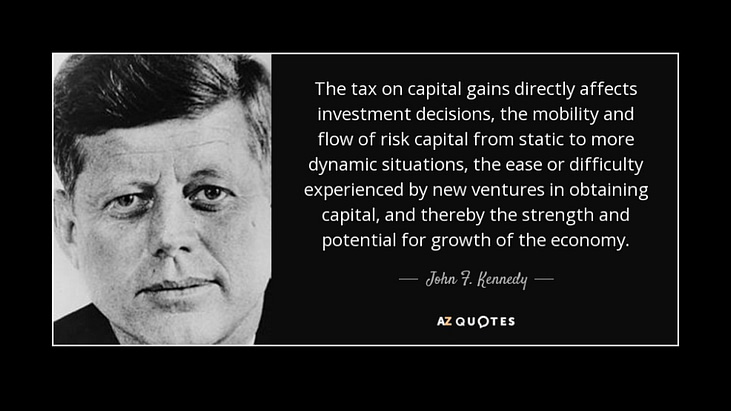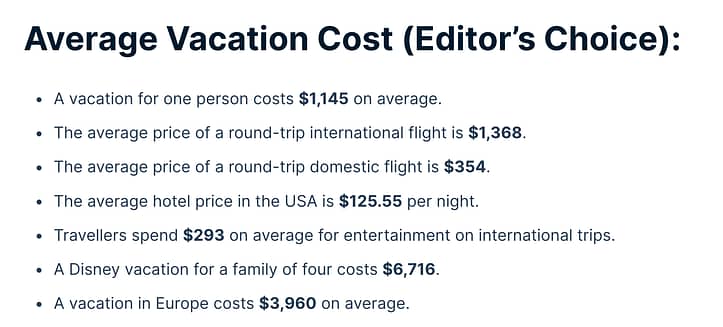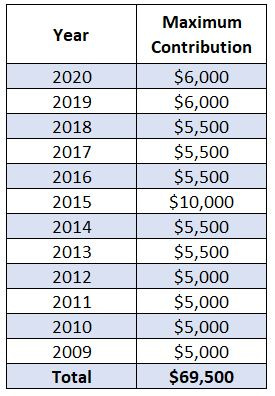In this video, we're going to talk about three tips to save you money on capital gain tax.
These three tips will range from easy, medium and hard. Implementing one of these tips will save you thousands of dollars.

This quote from JF Kennedy sounds quite complicated, so let me break it down for you.
The higher the taxes, the slower the economy, the worse off the state is actually quite simple. And if I just refer to what I just said, the lower, the capital gain, more economic activity and more people doing businesses and everyone is happier.
The Problem: You pay too much taxes
You don't want to pay capital gain taxes. The truth is, if there's a way for you to take advantage of the government incentives and not pay the taxes, then you should probably do it, right?
If you are able to reduce capital gain and reinvest in your business, hire another employee, so on and so forth, then by all means do it. Why would you pay more than what you have to?
The Benefit of Saving on Taxes

Credit: Average cost of a vacation
Let's say you invest in a $100K portfolio, okay. Fairly straight forward and you make 10% gain. So that's just like investing in an ETF fund, making 10% a year.
Now this year, you're probably making more than 10% from an ETF fund. So that's great. And you are paying around 2.5% gain in Canada.
If you have a 100K portfolio, if you make 10K, you're paying 2.5K a year. That is 2.5 % of your portfolio. Imagine what you can do with 2.5K of taxes saved a year.
Every year, you can go on a couple of nice meals. You can pay two, three months of rent. You can probably pay one month of rent in Vancouver, but that's a separate issue, but you get the idea. You can use this money to fund your children's education. If you save on these taxes, that's great. You can use it for somewhere else. Use it for traveling, boost the economy. For United States, if you exit within one year, then you pay something called short-term capital gain tax, which is closer to $3,700.
For myself, if I invest a $100K and make 30% gain, then my taxes will be around $7,500 per year. If I make 30% gain, if I'm living in a U S, then it will be $11,100 a year. If my rent is a thousand a month, then this could pay and cover all of my rent. So if you are able to save on taxes and you make a high return, then by all means, do it. Like there's no reason for you to pay more taxes when the government is legally telling you to save on taxes, because they want you to invest in the economy.
TIP #1: TFSA and Roth IRA

The first tip is TFSA account is called tax-free savings accounts. And as of right now, the contribution room is around $70,000. Now, what does that mean? And that means if you put money into something called a TFSA account, the money is after tax. So it was taxed already for the year. You put it in and then you invest, you invest, you invest. And when you take it out, you don't pay. That is pretty straightforward.
In US, it is called Roth IRA.
TIP #2: Your wife’s TFSA
What if you have more than a $100K that you want to invest in, so you don't have enough room in your TFSA and RRSP?
Well, you can also save on taxes if you use your wife's TFSA. Your wife also have a $80,000 TFSA account, so you can use that room to invest as well.
If you combine both of your TFSA accounts, that is $150K. So that is pretty comfortable.
If you look at my previous video where I talk about escape velocity, and how we can retire faster, you can achieve escape velocity with around $300K. With $150K tax free room to invest, you're pretty close in terms of achieving a high return tax-free return and taking income out on a regular basis.
TIP #3: Capital gain tax free countries

Now, chances are, if you're married, you can implement the first and the second tip. For the 3rd tip, you need to change your lifestyle. And it's really about opening an offshore account and becoming a non-resident. You wouldn't be able to execute it if you're living in Canada as a resident, because you would get taxed on worldwide income.
If you are a non-resident for us, I think you get tax globally, which means I don't think this applies to you.
It will be a bit more complicated for you guys. So you would probably need to consult your accountants.
This actually requires a lifestyle change. It actually requires you to be traveling more. You might want to do this when you are retired, where you get to a place where it's low on taxes, and here is an article on nine expect friendly countries with no capital gain taxes. So you also got to consider healthcare and stuff. But here are some locations that you might considering living in because of the low capital gain tax.
If you live in Switzerland, Singapore… and Hong Kong, there is no capital gain tax. That’s pretty amazing right?
